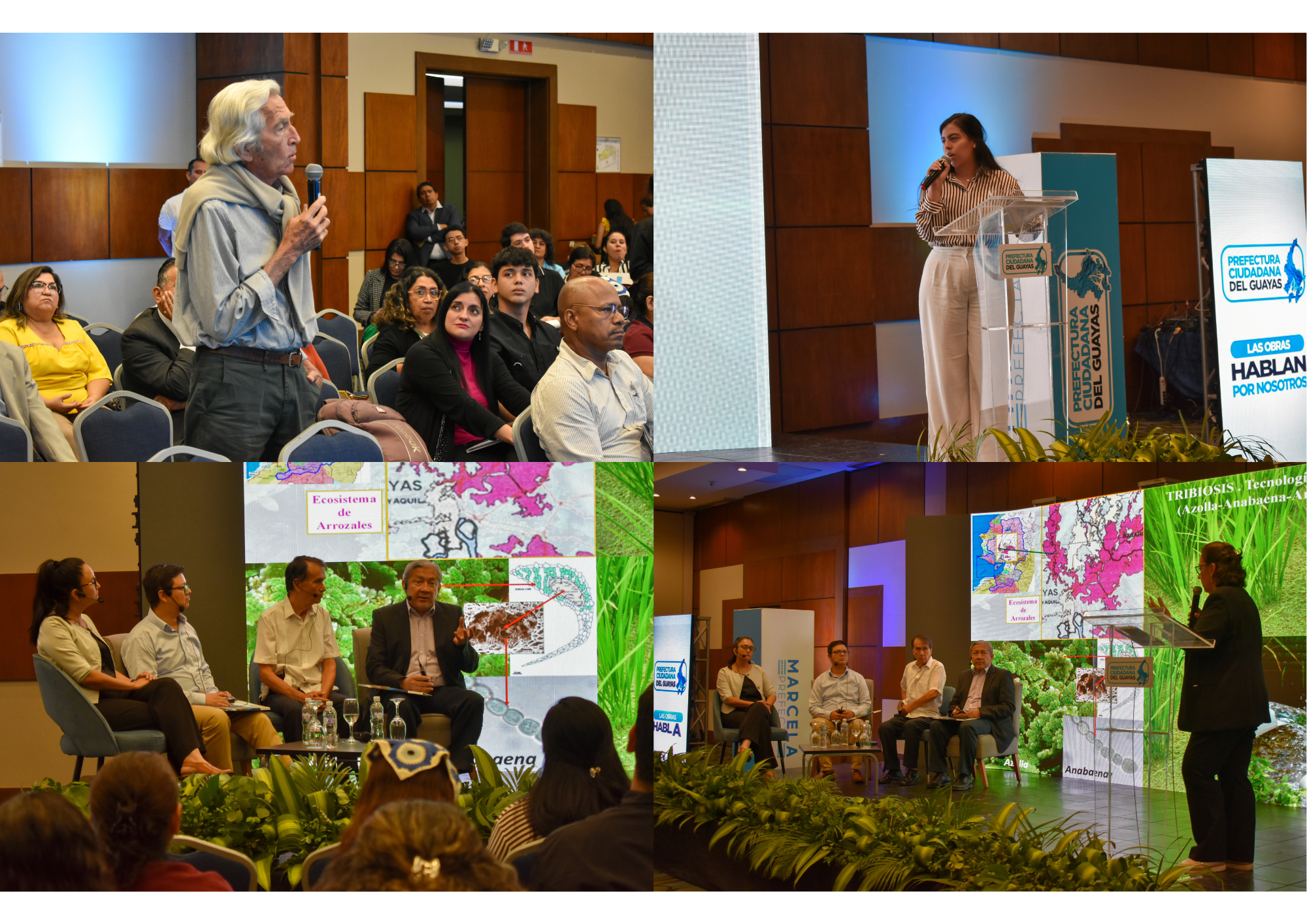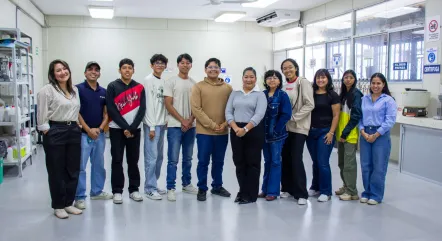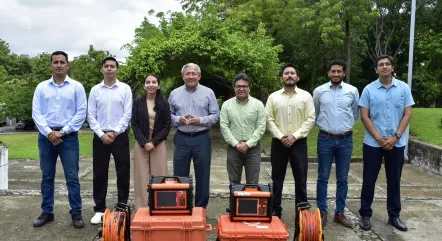The Faculty of Geosciences Engineering (FICT) and the Center for Earth Research and Applied Projects (CIPAT) had a prominent participation in the Second Provincial Climate Change Forum 2025, an event convened by the Prefecture of Guayas to promote technical analysis, inter-institutional dialogue, and the collective construction of solutions to the climate challenges faced by the province.
Held on Friday, November 14, in the Puerto Santa Ana sector of Guayaquil, the forum brought together environmental leaders, specialists, representatives of public agencies, academic institutions, social organizations, and key territorial actors who shared experiences and perspectives to strengthen the climate resilience of the Guayas province. The event is part of the provincial efforts to build an articulated, multisectoral environmental agenda and was inaugurated with a call to action to address the effects of climate change through integrated watershed management, the sustainable transition of productive systems, and the strengthening of scientific and technical capacities.
High-level academic participation
FICT was represented by Ing. Paúl Carrión, Ph.D., Dean of the faculty, who was invited as a panelist in the discussion “Financing and purpose of water funds.” His intervention emphasized the importance of economic and governance mechanisms for the protection of strategic ecosystems, as well as the role of science in decision-making processes aimed at the sustainable management of water resources. The panel addressed topics such as the conservation of water sources, public-private investment in ecological restoration, and the need to promote financial models that engage citizens in nature-based solutions.
Similarly, Ing. Emily Sánchez, researcher at CIPAT-ESPOL and coordinator of the Demonstrative Ecohydrology Site of the Manglaralto River–Aquifer System, participated as moderator of the thematic axis “Productivity,” a space focused on analyzing challenges and opportunities for productive sectors from a climate perspective. Her role made it possible to articulate visions among specialists, environmental managers, and representatives of productive sectors, fostering technical dialogue on innovation, efficiency, water management, and territorial adaptation.
A space for science, innovation, and cooperation
Throughout the day, the forum presented studies, practices, and projects related to climate change adaptation and mitigation, as well as community-based initiatives, ecosystem restoration, integrated water resource management, and territorial planning. The participation of academic institutions such as ESPOL enriched the discussions with scientific evidence, analytical models, and proposals grounded in applied research.

The event also strengthened collaboration among different levels of government, civil society organizations, academia, and local communities, recognizing that building climate solutions requires a collaborative and territorial approach. One of the most notable milestones in this effort was the announcement of the strengthening of the Guayas River Basin Commonwealth, a key step toward coordinated environmental management.
ESPOL’s commitment to the territory and climate action
The participation of FICT and CIPAT in this forum reaffirms ESPOL’s commitment to contributing to the sustainable development of the country through knowledge generation, applied research, technological innovation, and the training of professionals capable of addressing current and future climate challenges.
Through fields such as ecohydrology, environmental engineering, water management, territorial planning, and related disciplines, ESPOL continues to drive projects and collaborations aimed at promoting climate resilience, strengthening water security, and supporting the construction of territories better prepared to face climate variability and change.



